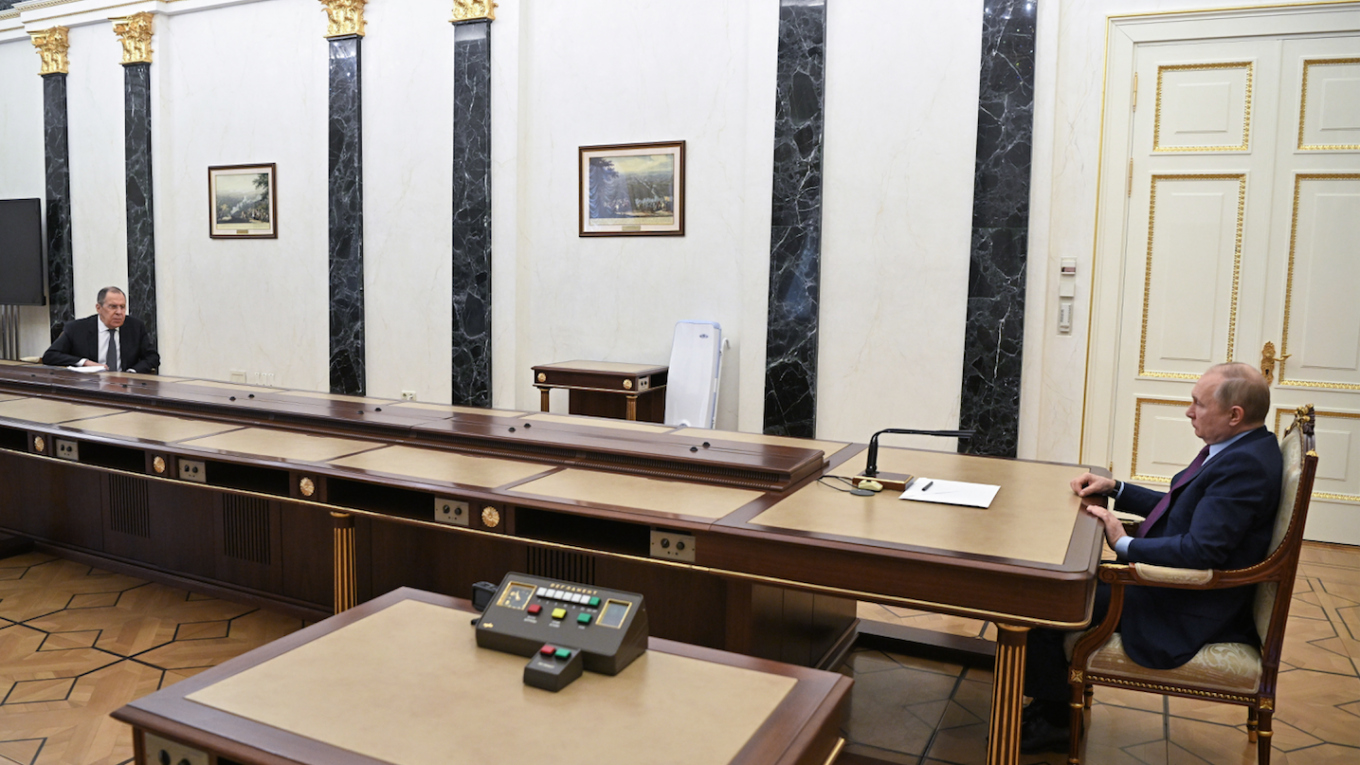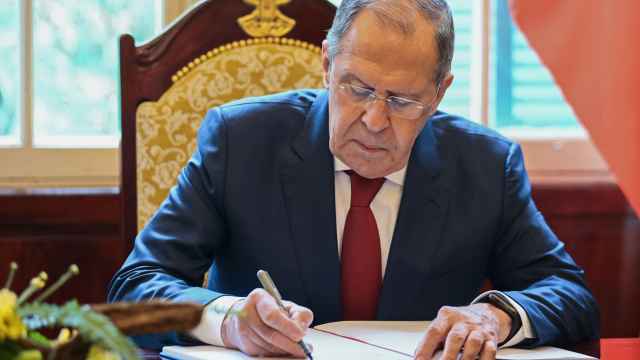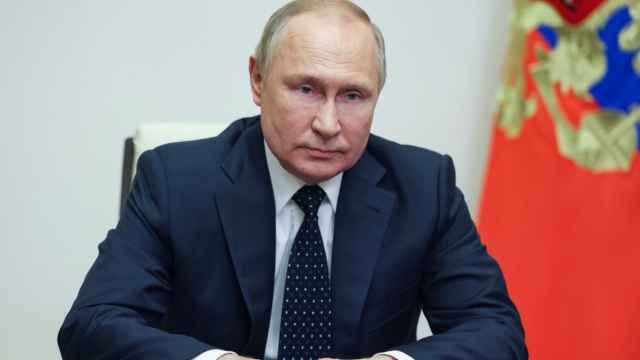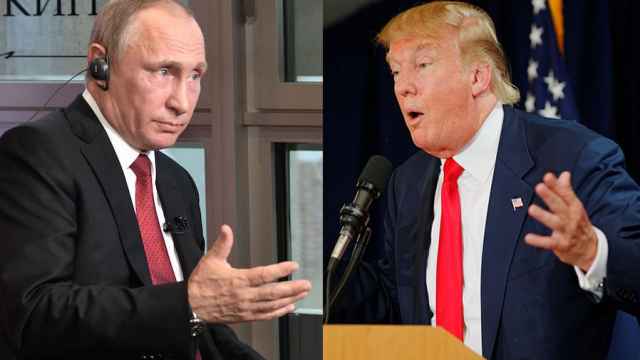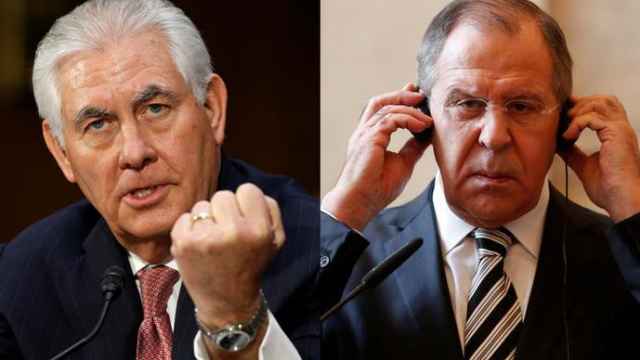Russia is ready to continue dialogue with the United States and NATO and is winding down some of the military drills that have stoked fears of a Russian invasion of Ukraine, the country's diplomatic and defense chiefs told President Vladimir Putin on Monday.
The comments mark a shift in tone amid increasingly grave fears of a Russian invasion of its neighbor. The U.S. and its allies raised alarm over the weekend that the 100,000 Russian troops surrounding Ukraine could invade at any point.
"I believe that our possibilities are far from being exhausted," Foreign Minister Sergei Lavrov said of security talks with the U.S., addressing Putin in a televised meeting from across a long table in the Kremlin.
Lavrov said he would suggest "continuing and increasing" dialogue, adding that talks "certainly shouldn’t continue indefinitely."
Russia last month expressed dissatisfaction when the U.S. and NATO rejected some of its key security demands. Washington and NATO instead laid out a series of areas where security cooperation with Moscow could be increased.
Asked by Putin if Russia and the U.S. could find areas of agreement, Lavrov said “there’s always a chance.”
Lavrov said Russia’s response to the U.S. proposals has been laid out in a 10-page document.
In a separate meeting with Putin, Defense Minister Sergei Shoigu said that some of Russia's large-scale military and naval exercises — which have taken place in all of its military districts and involved almost all of its fleets — are coming to an end.
“Some of these exercises are coming to an end, some will be completed in the near future,” Shoigu told Putin.
He did not specify whether that included Russia's ongoing joint drills with Belarus, which have added to concerns of an invasion of Ukraine and are scheduled to end Feb. 20.
Ukraine's defense minister on Monday hailed what he called a "positive" round of telephone talks with his Belarusian counterpart, aimed at deflating tensions stoked by the massive Russian-Belarus military drills.
Tensions between Russia and the West have reached levels not seen since the end of the Cold War over the 100,000 Russian troops massed near Ukraine's borders.
The U.S. accuses Moscow of preparing an invasion of its pro-Western neighbor, a claim Moscow denies, and has warned of severe consequences if it invades.
Russia demands legally binding guarantees halting NATO's expansion into eastern Europe and the deployment of strike facilities near Russia's borders, as well as for NATO's return to military positions from before 1997.
The U.S. and NATO formally rejected Russia’s core demands to close the door to Ukraine’s membership in the Western military alliance and sign its proposed bilateral treaty on European security, according to leaked documents.
They urged Russia to de-escalate its military build-up near Ukrainian borders to begin dialogue.
Putin has accused the West of ignoring Moscow's security concerns and of using Ukraine as a tool to contain Russia, though he has said he hoped a solution could be found to end spiraling tensions.
Despite Monday's comments hinting at de-escalation, experts cautioned against discounting entirely the possibility of an offensive against Ukraine.
“The disposition of Russian forces suggests they are nearing final preparations for a military operation,” Michael Kofman, an expert on the Russian military and research director of the Russia Studies Program at the CNA think tank, told The Moscow Times.
He said his own research did not show that Russia was planning a military de-escalation despite Shoigu saying some of its military exercises were concluding.
“If they’ve not already committed, think you’re looking at a go/no go decision this week,” Kofman tweeted earlier about Russia’s decision to start a military campaign.
Kadri Liik, a fellow at the European Council on Foreign Relations, told The Moscow Times that the escalating tensions have reached a sort of “culmination,” but said it's unlikely that a full de-escalation is on the near horizon.
“The Kremlin probably decided that it is counterproductive to continue it that way given the world’s reaction. You cannot keep up the tensions on that stage for very long,” she said.
“Russia will keep the West on its toes, on the edge. The Kremlin might rightly think that without applying pressure the discussion of their concerns will go away and the West will go back into its comfort zone. They will continue to apply the pressure because they really mean it when they talk about the security guarantees, about Ukraine not joining NATO,” she added.
“It was always important for Russia to show to the West that it was able to step up its diplomacy through military means, to achieve things that way,” Liik said.
AFP contributed reporting.
A Message from The Moscow Times:
Dear readers,
We are facing unprecedented challenges. Russia's Prosecutor General's Office has designated The Moscow Times as an "undesirable" organization, criminalizing our work and putting our staff at risk of prosecution. This follows our earlier unjust labeling as a "foreign agent."
These actions are direct attempts to silence independent journalism in Russia. The authorities claim our work "discredits the decisions of the Russian leadership." We see things differently: we strive to provide accurate, unbiased reporting on Russia.
We, the journalists of The Moscow Times, refuse to be silenced. But to continue our work, we need your help.
Your support, no matter how small, makes a world of difference. If you can, please support us monthly starting from just $2. It's quick to set up, and every contribution makes a significant impact.
By supporting The Moscow Times, you're defending open, independent journalism in the face of repression. Thank you for standing with us.
Remind me later.


